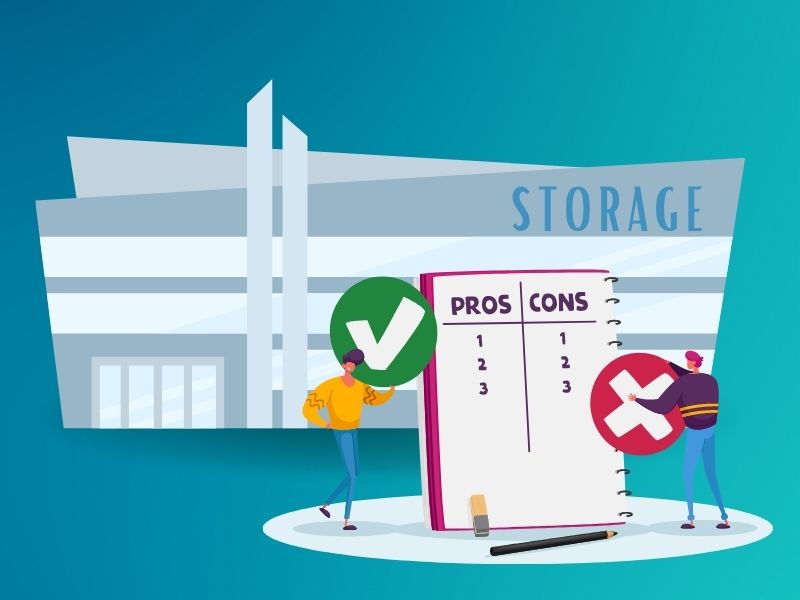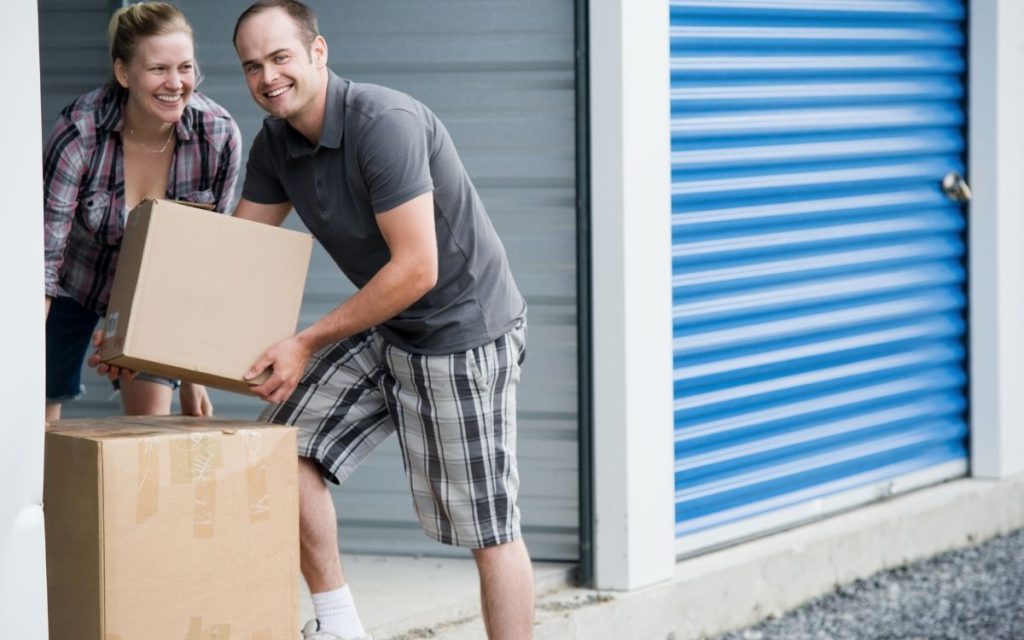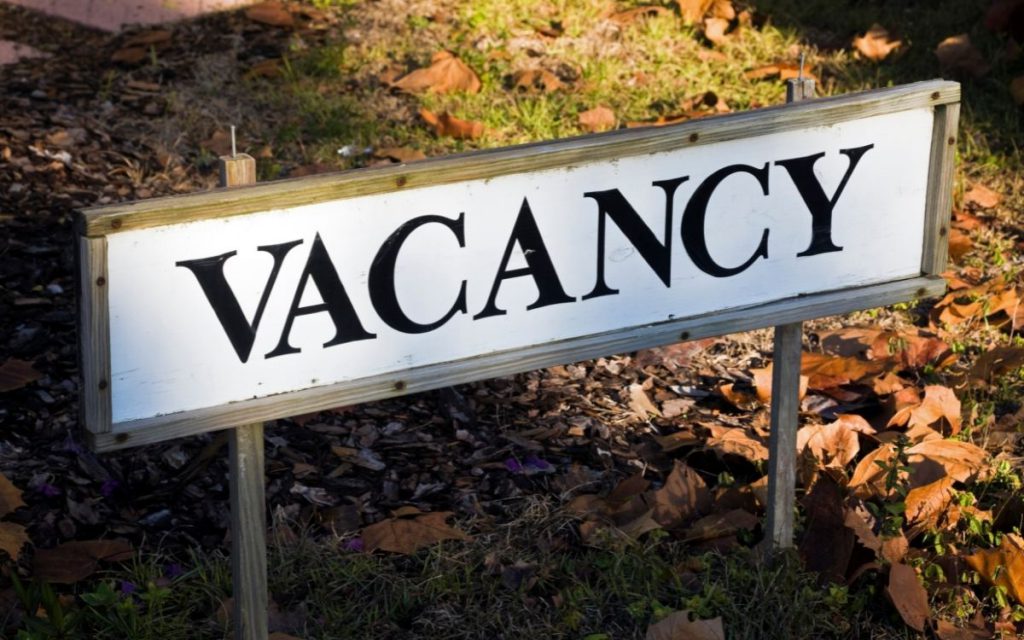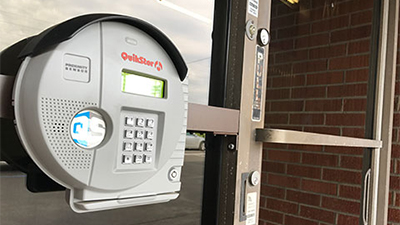





As with any business, owning a storage facility isn’t always a walk in the park. There are a lot of things to plan, assess and consider before deciding if investing in self-storage is the right step for you.
Before making the leap into the storage industry, you need to know about all the unique and rewarding opportunities as well as understand the challenges and risks you could face when you get started and as your business grows.
Here’s a list of 10 pros and cons to consider if you’re interested in stepping into the world of self-storage.

5 Pros of Owning a Storage Facility
1. A Storage Facility Offers Value to the Community in Many Ways
A Safe Place to Store Belongings
Giving people a safe and secured place to store their belongings where they can access their them as they please while also freeing up room at home or the office is a great service to provide to the community. It gives people the convenience to be able to store their valuable items for whichever reasons they may have such as freeing up space at home or between moving houses.
Business Storage
With a storage facility, you can also provide the local businesses in your area a space to store their supplies or equipment outside of their office. This gives them an extra space for all their additional supplies, items they don’t need immediately and files and documents that are better stored off-site.
Security
A storage facility can also provide people a safer space to store their valuable belongings securely. Home and office break-ins and thefts do occur and providing a storage unit that has good security measures and insurance policies reduces these occurrences.
It gives tenants peace of mind knowing that their possessions are in a safe and secured space.

2. Demand for Storage is High and Relatively Reliable
Storage units continue to be in demand even with the fluctuation of economic conditions. When the economy is good, people buy more stuff and their belongings add up, which means more storage space is needed.
People accumulate more and more stuff everyday, especially now with e-commerce. It’s so easy to purchase things online and so many new items are being invented and created each day. Of course with all the old and new stuff, people need a place to store items they don’t need at the moment.
Of course, it’s not always too much stuff that leads people to seek out storage. Major life changes are creating new prospective tenants each day. People still need a place to store items while moving, and new businesses are also starting up all the time that could use some off-site space to store extra supplies or equipment.
When the economy is bad, people may move away to find work and would be needing storage during transfers. Other people might need to downsize and move to smaller homes which makes a storage unit a perfect place to store their extra items.
Despite what the economy is doing, good or bad, the self-storage industry is projected to be a reliable income-generator for years to come.

3. Management Options Offer Flexibility
The level of interaction with the customers in the self-storage business can be very minimal compared to other industries. As the name implies, self-storage is more of a self-service, hands-off business, meaning a small team or sometimes even just one person can run a storage facility.
Having a top-notch automated security system can help cut down on labor costs even further by reducing the need for security staff. The management usually just interacts with customers when they visit the facility, sign a contract, pay for their rent and move out.
As an owner, you’ve got plenty of options depending on how involved in the business you want to be. You could run the facility yourself, hire a manager, or even hire a management company to oversee operations and hiring. Using whatever management system works best for you, self-storage can afford you the flexibility to have spare time for other ventures.

4. There are Plenty of Opportunities for Additional Revenue Streams
Owning a storage facility opens up multiple other streams of potential revenue, many of which are specific to the storage industry. Selling moving supplies and offering moving truck rentals are popular additions available at many storage facilities. Offering a tenant protection plan is another great revenue stream you can add on to your self storage business.
5. Storage Plays Well with Other Businesses
Owning a storage facility can also give you an opportunity to run multiple businesses simultaneously. If you’ve got room on the property and can get the permits, consider adding on a service like a car wash or fuel station.
Cons of Owning a Storage Facility

1. Getting Great Staff Can Take Time
Just like in any other industry, having good management is crucial to the performance of your self-storage facility. As storage facilities often have a small team, it means that your staff carries more responsibility. It’s important to get the right people to help run your business for it to be successful.
The hiring process can be tedious and sometimes it can be downright difficult to get the right people with the right know-how to manage your business. Be patient during the hiring process. When you do find a good fit that works out well, compensate them accordingly and treat them right. Having good people on staff can make all the difference.

2. Location Can Be Tricky
As with every brick-and-mortar business, location is imperative. Location is an important factor when it comes to storage unit facilities. A good location has a high-visibility and is easily accessible.
A poor location that’s hard to get to or can’t be easily seen from the main road can negatively affect the occupancy rate at a storage facility. If you’re planning a new construction this can be an easier consideration when choosing land to develop, but if you’re purchasing an existing facility be on the lookout for ways you can increase visibility that may be lacking.

3. Competition is High and Occupancy isn’t Guaranteed
Most seasoned storage owners will tell you that an occupancy rate right around 90% is a target to strive for. But the occupancy rate for a self-storage business varies and is not guaranteed. With life changes like big moves or buying new homes, occupancy rates at storage facilities already have a natural ebb and flow, but competition can affect occupancy rates, too.
Competition in the self-storage industry is only getting higher as the demand for storage continues to grow. You need to be able to keep up with technological advancements and other changes in the market that drive tenant demand in order to set your facility apart from the competition.

4. Tenant Issues and Problems are Inevitable
Although there’s sure to be some unruly customers in every industry, when it comes to self-storage a good rule of thumb is to expect the unexpected. Non-payment, working out payment plans, holding auctions, and however else your facility handles delinquencies will be par for the course.
But some tenant situations that sound farfetched happen far more often than you might think. These are just a few bad tenant behaviors that we’ve heard of from more than one facility:
- Always being delinquent… and always demanding late fees be waived
- Living in their storage unit
- Filing a protection claim for rodent damage… due to an infestation originating with food stored in their unit

5. Security is a Necessary Expense
A storage facility has to have strong security equipment and protocols throughout the property to keep tenant belongings safe in the facility. Since you’re literally in the business of providing a safe space for people to keep their possessions, any crime that goes on at your property can affect your tenants’ trust, so it’s best to invest in your security.
From access control at the gate to security cameras throughout and even individual unit locks, your security equipment should be up to date, well-maintained, and in good working order at all times.
As technology gets more advanced, so do security systems that are available to storage facilities. Invest as well as you can at first and reinvest in your business by upgrading systems as old equipment becomes outdated and when it makes sense to do so financially. Some systems and upgrades can be costly but are necessary for the growth of your business and to ensure the safety of your customers’ belongings.
A self-storage business can be a profitable venture, although there are always risks associated as with any business. If have the wherewithal and the willingness to withstand the ups and downs that come with owning a storage facility, then you’ll definitely have a chance to build a business that can give value to your community and be a profitable and rewarding opportunity for you.
Resources:
- https://brandongaille.com/15-pros-and-cons-of-owning-storage-units/
- https://www.debtfreedr.com/pros-and-cons-of-owning-storage-units/
- https://www.unitsfranchisegroup.com/pros-and-cons-of-starting-a-local-storage-unit-business/
- https://www.selfstorageinvesting.com/key-pros-and-cons-of-self-storage-investing/